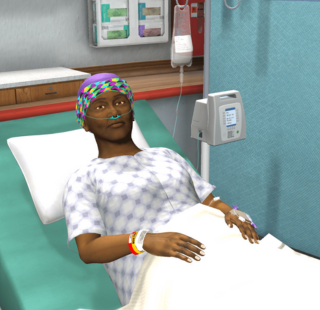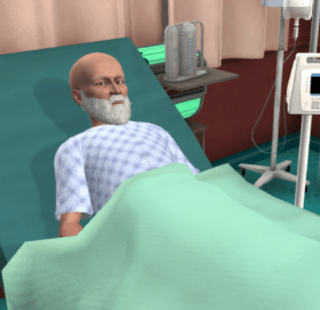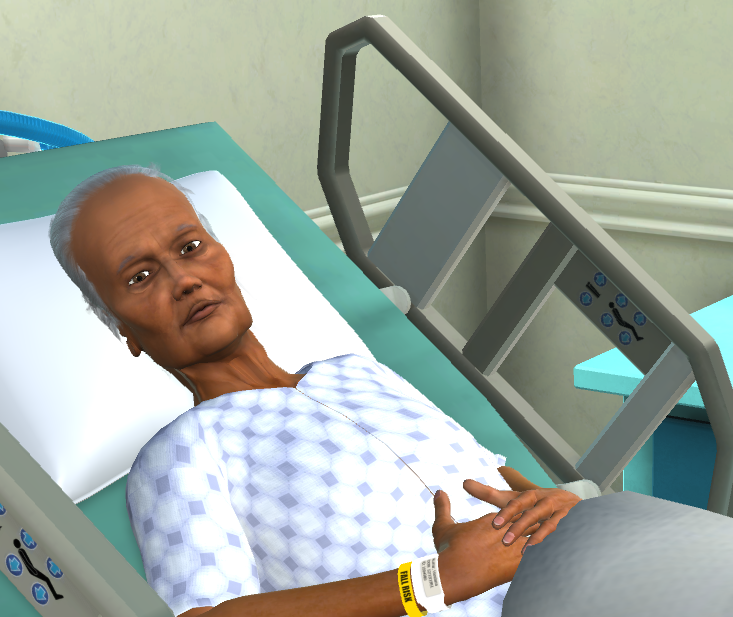
In the many important jobs nurses do, taking care of very sick people who are close to dying is especially meaningful. When someone is nearing the end of their life, the talks nurses have with them and their families can be hard, delicate, and sometimes lead to disagreements.
These talks can really matter and stick with people for a long time. Also, because more people are getting older, this kind of care is becoming more and more important for nurses.

Struggling to meet your deadline?
Get your assignment on Learning to Bring Comfort to Patients and Families Through Palliative and Hospice Simulations done by certified MDs and PhDs in the USA. ORDER NOW!
But there’s some good news.
Lately, the ways we help people in palliative and hospice care have gotten much better. Before, someone close to dying might have had to move to a special place called a hospice. But now, more hospitals and health centers give this care right to the patient.
But there are still problems to fix.
Learning to Bring Comfort to Patients and Families Through Palliative and Hospice Simulations
When nurses are learning, they often don’t get to practice these important talks with real patients and families. Learning in a classroom is helpful, but it’s not enough.
To fix this, Shadow Health made new computer programs for nursing students to practice caring for people in palliative and hospice care. More than 700,000 nursing students use these programs.
We talked to three nurse teachers at Elsevier who helped make these new computer programs.
“Helping people and their families near the end of life is really important,” says Brittny. “It’s something families will always remember.”
“When I was learning, we only talked about dying once,” says Cheryl. “But now, we teach about hospice and palliative care, which I think is really important.”
“Now more people can get this kind of care because we’ve made it easier to access,” says Amanda. “Hospice and palliative care aren’t just for the sick person; they help the whole family during hard times.”
Learning to Bring Comfort to Patients and Families Through Palliative and Hospice Simulations
 Regina Walker Shadow Health Assessment
Regina Walker Shadow Health Assessment
Shadow Health created three computer programs that concentrate on caring for people who are very sick and near the end of their life. One of them is called
Focused Exam: End of Life with Regina Walker. In this program, students talk to Mrs. Walker about hospice care, spiritual thoughts, and how to manage pain.
https://usanursingpapers.com/documentation-tina-jones-neurological-shadow-health-assessment/

Samuel Green Shadow Health Assessment
Patient Care Rounds: Postmortem Care with Samuel Green, in which students will assess a patient who is expected to pass away and conduct appropriate interventions.
“Regina was introduced in 2017, offering nursing students a chance to start talking about hospice care,” said Brittny.
https://usanursingpapers.com/noah-caputo-school-age-sick-visit-dermatology-shadow-health-subjective-data-collection/
Vandana Kumar Shadow Health Assessment
 Complex Assessment: End Stage Heart Failure with Vandana Kumar, where students will speak with Mrs. Kumar about her request for hospice care and advocate for her wishes with her immediate family.
Complex Assessment: End Stage Heart Failure with Vandana Kumar, where students will speak with Mrs. Kumar about her request for hospice care and advocate for her wishes with her immediate family.
Vandana joined Shadow Health last year, which added more topics for students to discuss when they interact with her son. They can talk about what palliative care means and deal with challenges from other family members, which is a common situation.
Our newest simulation, Samuel, is reaching the end of his life, and his family is with him. Students can learn about issues related to the end of life, such as religious beliefs and how to support the family during this time.
These conversations are important to practice in a safe environment because dealing with them as a new nurse can be very stressful. Repeating these discussions makes them easier over time.
The Shadow Health team worked with experts to make sure the simulated conversations are accurate and realistic.
Dr. June Llerena, who works at the University of Tampa, explained that palliative care focuses on improving a patient’s quality of life rather than just counting the days they have left. It’s about respecting their wishes and ensuring they are comfortable.
Using Shadow Health simulations helps nursing students not only gain knowledge but also empathy.
Amanda summed it up by saying that this is the time for students to learn when to show empathy and when to take a step back, demonstrating to patients that they are listening attentively.

Dont wait until the last minute.
Provide your requirements and let our native nursing writers deliver your assignments ASAP.